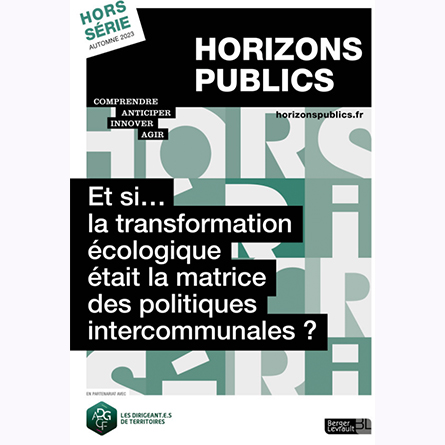Une analyse d’Ivaylo Petev, Philippe Coulangeon, Yoann Demoli et Maël Ginsburger pour le quotidien AOC.
Mardi 5 mars 2024
CRESTive Minds – Épisode 4 – Samuel Coavoux
Researcher portrait: Samuel Coavoux, assistant professor at CREST-ENSAE Paris.
What is your career path?
After my PhD, I worked for five years at Orange, a leading French telecommunication company, as a digital sociologist. Orange is one of the few French companies to have a whole team devoted to social scientific research, something that is quite common elsewhere. I did research on various themes, like cultural consumption, platform work, and digital advertisement.
Why did you study sociology?
I majored in Political Science and East Asian Studies, and originally wanted to work in the media. I started reading and studying social science books seriously on an exchange program in Kwansei Gakuin University in Japan. I was a bit lost in translation and social sciences was a good way to understand what was going on around me.
When I came back, I applied for a Master Program in Sociology at the Ecole Normale Supérieure de Lyon, where there were a lot of sociologists of culture.
Your co-authored “La fin du Game. Les jeux vidéo au quotidien” (Endagme. Videogames and daily life) published by Presses Universitaires, shows that video games audiences are different than what we usually think. Can you tell us more about this?
This was a collective project led by Hovig Ter Minassian. We did a national representative survey of videogame practices in France, among the 11+ population.
Our first aim was to broaden the dominant view of videogames as a young, male, working-class activity, a view that is aligned with how “gamers”, people whose social identity incorporates videogame playing, define what true games and true gaming is.
In this view, there are “real games” that are difficult, challenging, engaging, and mere entertainment.
We show that taking all digital games seriously yields very different estimates on the prevalence of video games: about 60% of the population, and virtually 100% of teenagers, engage in digital games, be they “casual” smartphone games (e.g. Candy Crush), light party games (e.g. Mario Kart), or hardcore video games (e.g. League of Legends). This is about 20 percentage points above what previous surveys have measured by asking respondants not if they played video games, but if they were video games players. There is a large difference between identity and practice.
Have you noticed any correlations between video game playing and demographic properties?
When we look at the details, there are many differences in practice, intensity, and diversity of video game playing. Age is the best predictor. Gender is also very important: men are more likely to play, and to play frequently, than women at every age — but young girls are still much more involved in video games than adult men. They also play different kind of games, with action, adventure, sports, and strategy games being more masculine.
Social class and education are not very correlated with intensity of frequency, but they are linked with device choice: working class players favor consoles and upper-middle class players favor computers. This is linked with professional uses of computers and is a divide that might increase, as we are seeing that, with the massification of smartphones, rates of computer equipment are actually declining among the working class. In that sense, video games are linked with digital inequalities.
You have also been studying digital consumption in other settings, such as music. In a recent paper, you start with a puzzle: why is YouTube the leading platform for music consumption even though qualitative research show that music consumers do not look at the videos. Can you tell us why?
This was intended as a case study in environmentally inefficient consumption practices, with my colleage Jean-Samuel Beuscart.
Streaming videos are about four times as energy consuming as the equivalent audio track. If one does not watch the video but only listens to the sound, this energy is wasted. The total impact is very small compared to that of cars, planes, or cattle and we are not suggesting regulating access to digital music. But is is interesting to look at the reasons why some sociotechnical configurations persist even though there are clear alternatives (Spotify or Deezer perform the same service as YouTube).
We show that YouTube can be framed as a free and open listening platform (especially to casual listeners), as an efficient soundtracking device in many contexts, and as a useful complementary listening and music sharing device, and that, as a consequence, is better adapted to some consumption contexts.
Your recent research focuses on algorithms and their effects on consumption. It is often said that platforms trap consumers into filters bubbles. Is that the case?
The literature has produced mixed results and the picture is not very clear. It seems more and more that is is not the case: platforms are actually a bit more diverse than real life interactions. I am studying this in various ways.
With Abel Aussant, we are using survey data and matching techniques to estimate the effect of digital consumption on the diversity of tastes and we see a small, positive, significant effect: using digital platforms actually increases diversity in cultural consumption, which we measure with the number of different movie genres people watch, or music genres they listen to.
In another project, with platform data, I also show that the music chosen by algorithms is a bit more diverse than that we tend to focus on when we choose what to listen to.
Finally, with Jean-Samuel Beuscart, we take a qualitative look at what it means to use algorithms. The literature insists on jow they threaten people’s agency, because they are the one choosing what we will hear. This is not that new – radio stations play a large part in deciding what music people listen to. We show that consumers usually use algorithms knowingly, when they prefer to delegate choice, because they are focusing on something else, and because having to choose among a very large catalog can be a burden in many situations.
Related literature
Hovig Ter Minassian, Vincent Berry, Manuel Boutet, Samuel Coavoux, Isabel Colon de Carvajal, David Gerber, Samuel Rufat, Mathieu Triclot et Vinciane Zabban (2021), La fin du game ? Les jeux vidéo au quotidien, Tours, Presses Universitaires François Rabelais.
Jean-Samuel Beuscart, Samuel Coavoux & Jean-Baptiste Garrocq (2023). “Listening to music videos on YouTube. Digital consumption practices and the environmental impact of streaming”. Journal of Consumer Culture, 23(3).
Samuel Coavoux, Abel Aussant (2024), “The Netflix Omnivore. The effect of streaming platforms on cultural diversity and inequalities“, PrePrint
Click here to access Samuel Coavoux’s Personal website
CRESTive Minds – Épisode 4 – Samuel Coavoux
Researcher portrait: Samuel Coavoux, assistant professor at CREST-ENSAE Paris.
What is your career path?
After my PhD, I worked for five years at Orange, a leading French telecommunication company, as a digital sociologist. Orange is one of the few French companies to have a whole team devoted to social scientific research, something that is quite common elsewhere. I did research on various themes, like cultural consumption, platform work, and digital advertisement.
Why did you study sociology?
I majored in Political Science and East Asian Studies, and originally wanted to work in the media. I started reading and studying social science books seriously on an exchange program in Kwansei Gakuin University in Japan. I was a bit lost in translation and social sciences was a good way to understand what was going on around me.
When I came back, I applied for a Master Program in Sociology at the Ecole Normale Supérieure de Lyon, where there were a lot of sociologists of culture.
Your co-authored “La fin du Game. Les jeux vidéo au quotidien” (Endagme. Videogames and daily life) published by Presses Universitaires, shows that video games audiences are different than what we usually think. Can you tell us more about this?
This was a collective project led by Hovig Ter Minassian. We did a national representative survey of videogame practices in France, among the 11+ population.
Our first aim was to broaden the dominant view of videogames as a young, male, working-class activity, a view that is aligned with how “gamers”, people whose social identity incorporates videogame playing, define what true games and true gaming is.
In this view, there are “real games” that are difficult, challenging, engaging, and mere entertainment.
We show that taking all digital games seriously yields very different estimates on the prevalence of video games: about 60% of the population, and virtually 100% of teenagers, engage in digital games, be they “casual” smartphone games (e.g. Candy Crush), light party games (e.g. Mario Kart), or hardcore video games (e.g. League of Legends). This is about 20 percentage points above what previous surveys have measured by asking respondants not if they played video games, but if they were video games players. There is a large difference between identity and practice.
Have you noticed any correlations between video game playing and demographic properties?
When we look at the details, there are many differences in practice, intensity, and diversity of video game playing. Age is the best predictor. Gender is also very important: men are more likely to play, and to play frequently, than women at every age — but young girls are still much more involved in video games than adult men. They also play different kind of games, with action, adventure, sports, and strategy games being more masculine.
Social class and education are not very correlated with intensity of frequency, but they are linked with device choice: working class players favor consoles and upper-middle class players favor computers. This is linked with professional uses of computers and is a divide that might increase, as we are seeing that, with the massification of smartphones, rates of computer equipment are actually declining among the working class. In that sense, video games are linked with digital inequalities.
You have also been studying digital consumption in other settings, such as music. In a recent paper, you start with a puzzle: why is YouTube the leading platform for music consumption even though qualitative research show that music consumers do not look at the videos. Can you tell us why?
This was intended as a case study in environmentally inefficient consumption practices, with my colleage Jean-Samuel Beuscart.
Streaming videos are about four times as energy consuming as the equivalent audio track. If one does not watch the video but only listens to the sound, this energy is wasted. The total impact is very small compared to that of cars, planes, or cattle and we are not suggesting regulating access to digital music. But is is interesting to look at the reasons why some sociotechnical configurations persist even though there are clear alternatives (Spotify or Deezer perform the same service as YouTube).
We show that YouTube can be framed as a free and open listening platform (especially to casual listeners), as an efficient soundtracking device in many contexts, and as a useful complementary listening and music sharing device, and that, as a consequence, is better adapted to some consumption contexts.
Your recent research focuses on algorithms and their effects on consumption. It is often said that platforms trap consumers into filters bubbles. Is that the case?
The literature has produced mixed results and the picture is not very clear. It seems more and more that is is not the case: platforms are actually a bit more diverse than real life interactions. I am studying this in various ways.
With Abel Aussant, we are using survey data and matching techniques to estimate the effect of digital consumption on the diversity of tastes and we see a small, positive, significant effect: using digital platforms actually increases diversity in cultural consumption, which we measure with the number of different movie genres people watch, or music genres they listen to.
In another project, with platform data, I also show that the music chosen by algorithms is a bit more diverse than that we tend to focus on when we choose what to listen to.
Finally, with Jean-Samuel Beuscart, we take a qualitative look at what it means to use algorithms. The literature insists on jow they threaten people’s agency, because they are the one choosing what we will hear. This is not that new – radio stations play a large part in deciding what music people listen to. We show that consumers usually use algorithms knowingly, when they prefer to delegate choice, because they are focusing on something else, and because having to choose among a very large catalog can be a burden in many situations.
Related literature
Hovig Ter Minassian, Vincent Berry, Manuel Boutet, Samuel Coavoux, Isabel Colon de Carvajal, David Gerber, Samuel Rufat, Mathieu Triclot et Vinciane Zabban (2021), La fin du game ? Les jeux vidéo au quotidien, Tours, Presses Universitaires François Rabelais.
Jean-Samuel Beuscart, Samuel Coavoux & Jean-Baptiste Garrocq (2023). “Listening to music videos on YouTube. Digital consumption practices and the environmental impact of streaming”. Journal of Consumer Culture, 23(3).
Samuel Coavoux, Abel Aussant (2024), “The Netflix Omnivore. The effect of streaming platforms on cultural diversity and inequalities“, PrePrint
Click here to access Samuel Coavoux’s Personal website
A panel organised and chaired by sociologist Paola Tubaro at the European Parliament in Brussels
The Transnational Forum of Alternatives to Uberisation #4 brought together more than 100 workers, lawyers, trade unionists and Uberisation experts from across the European Union and around the world.
Paola Tubaro organized and chaired the “Meet the human workers behind artificial intelligence” panel for the event.
21 & 22 February 2024
European Parliament – Brussels
A panel organised and chaired by sociologist Paola Tubaro at the European Parliament in Brussels
The Transnational Forum of Alternatives to Uberisation #4 brought together more than 100 workers, lawyers, trade unionists and Uberisation experts from across the European Union and around the world.
Paola Tubaro organized and chaired the “Meet the human workers behind artificial intelligence” panel for the event.
21 & 22 February 2024
European Parliament – Brussels
Les femmes et les hommes sont-ils égaux face à l’avènement de l’intelligence artificielle dans les entreprises ?
Dans son article pour le journal Le Monde, Sophy Caulier interview Paola Tubaro, chercheuse en sociologie au CREST, sur ses récentes recherches.
24 Janvier 2024
Les femmes et les hommes sont-ils égaux face à l’avènement de l’intelligence artificielle dans les entreprises ?
Dans son article pour le journal Le Monde, Sophy Caulier interview Paola Tubaro, chercheuse en sociologie au CREST, sur ses récentes recherches.
24 Janvier 2024
Les ressorts sociaux de la bifurcation écologique des Français
Une contribution d’Ivaylo Petev pour le numéro spécial d’Automne 2023 de la revue Horizons Publics.
Les ressorts sociaux de la bifurcation écologique des Français
Une contribution d’Ivaylo Petev pour le numéro spécial d’Automne 2023 de la revue Horizons Publics.
Façonner une IA grâce aux sciences sociales pour lutter contre la désinformation
Un article publié par le CNRS, sur le projet projet AI4TRUST, auquel participe Paola Tubaro, directrice de recherche au CNRS et chercheuse au CREST.
11 décembre 2023










